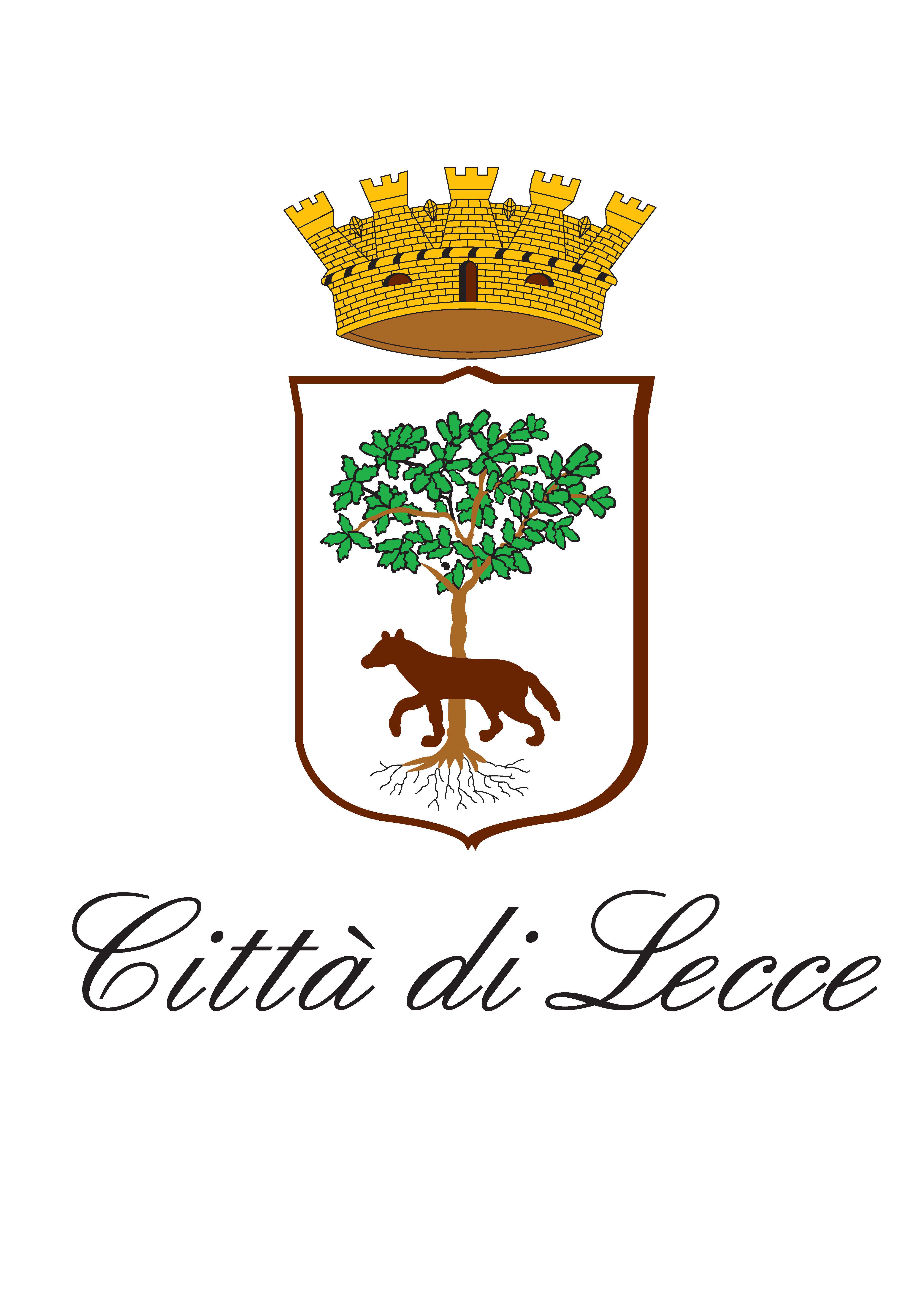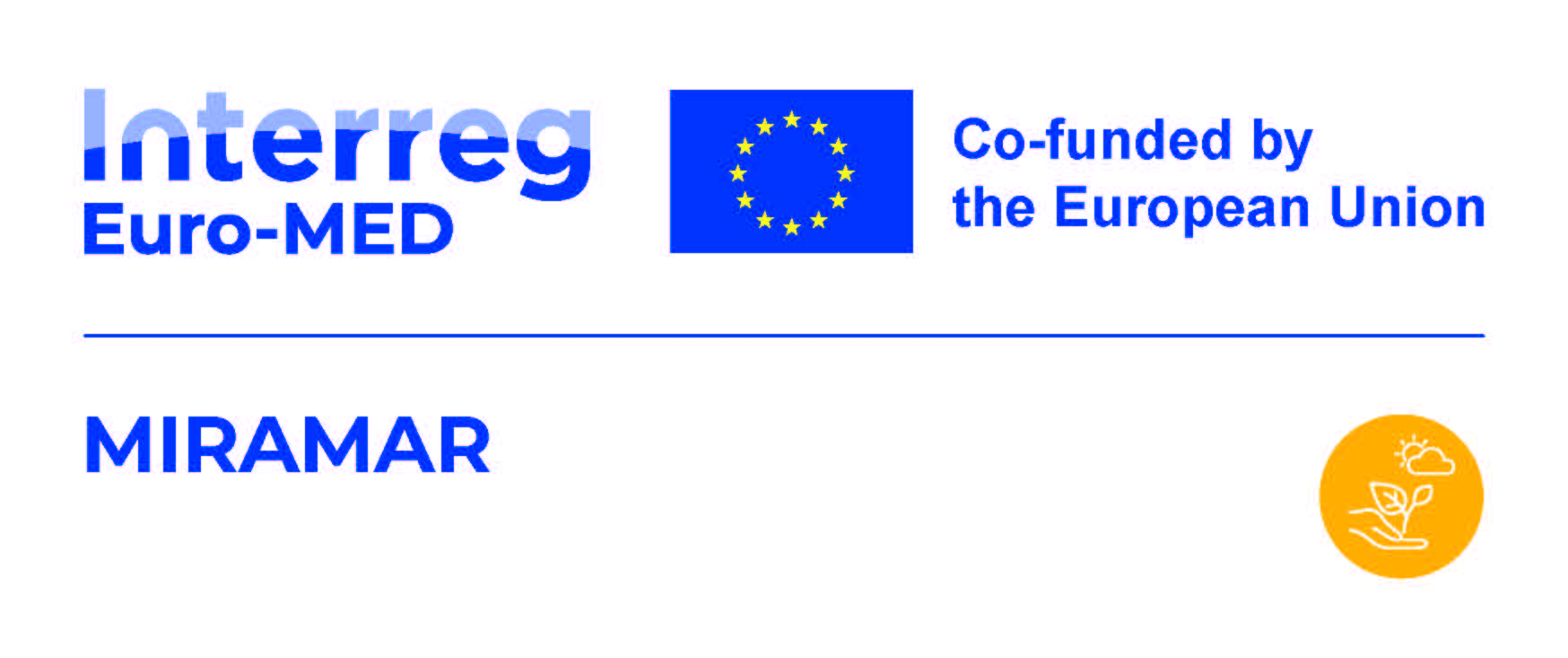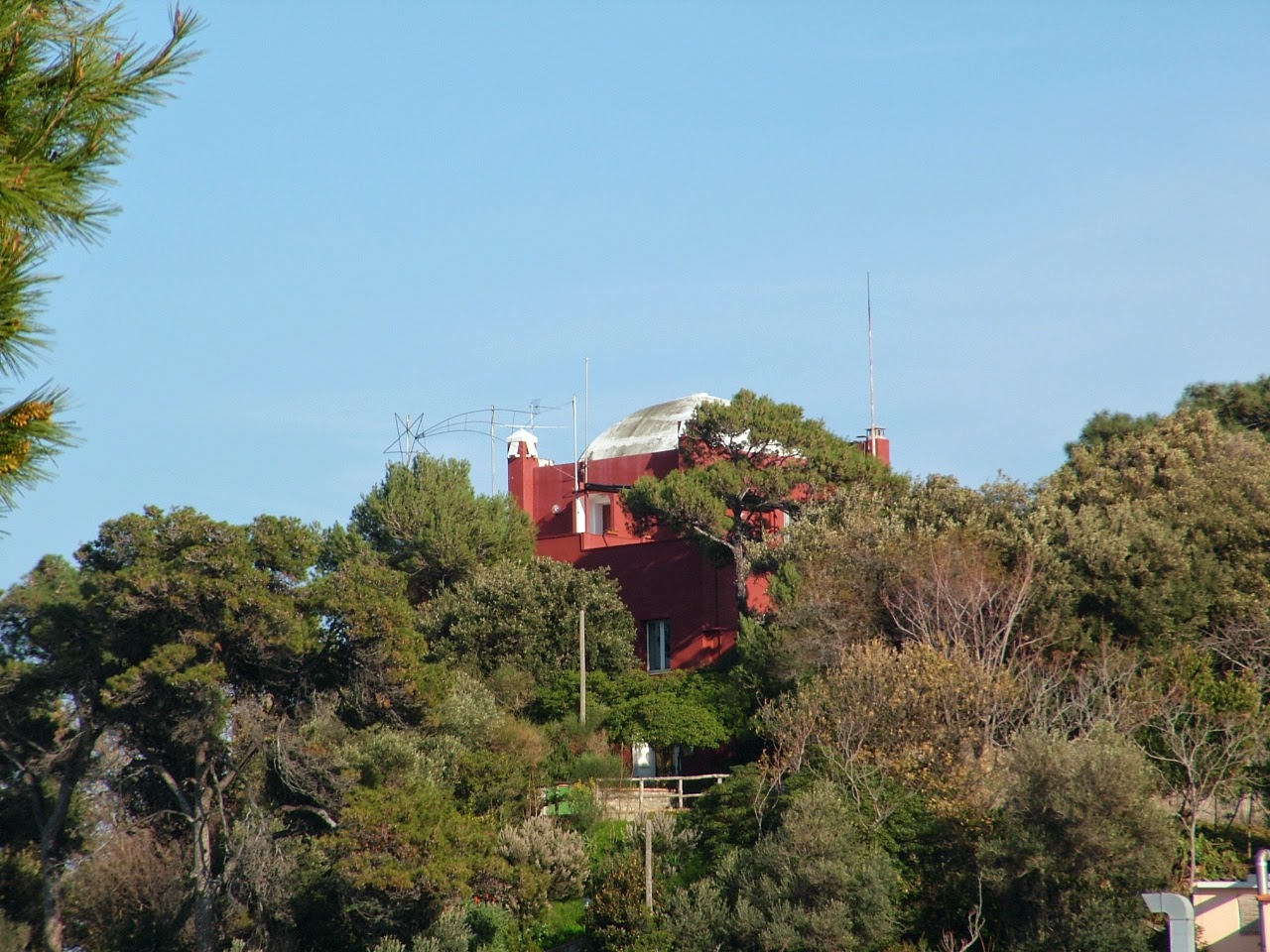Accélérateur d’Innovation Transfrontalier pour la Gestion et la Valorisation du Crabe Bleu dans une Approche Circulaire
Programme: Interreg NEXT Italia – Tunisia 21-27
Duration: 15/05/2025 – 15/05/2028
Part of the Interreg NEXT Italy-Tunisia 2021-2027 program, the CercleBleu project addresses the challenges posed by the spread of the blue crab in the Mediterranean. The initiative seeks to transform this ecological threat into an economic opportunity by promoting a circular economy model that integrates fishing, processing, and marketing processes between Sicily and Tunisia. By strengthening Open Science (IOS), the project aims to innovate local production chains while ensuring environmental sustainability.
Objectives
The project aims to implement an integrated cross-border approach for managing the blue crab resource, mitigating its impact on ecosystems and leveraging its industrial potential.
To achieve these goals, the initiative focuses on the following key points:
- Open science promotion: strengthening cross-border scientific collaboration to develop shared solutions for invasive species management;
- Fishery chain transformation: restructuring blue crab fishing and marketing processes to optimize operational efficiency and commercial value;
- Circular economy models: implementing strategies for waste and biomass recovery and valorization, reducing the environmental footprint of fishing activities;
- Cross-border cooperation: establishing an innovation ecosystem between Italy and Tunisia for the joint management of shared marine resources;
- Governance and technical support: ensuring rigorous financial and administrative monitoring to maintain intervention effectiveness and compliance with European cooperation protocols.
Coordinator: Institut National des Sciences et Technologies de la Mer (INSTM), Tunisia
SZN Principal Investigator: Maria Cristina Mangano, Carmen Rizzo
Partners:
- Consorzio Nazionale Interuniversitario per le Scienze del Mare (CONISMA), Italia
- Centre de Recherche en Numérique de Sfax (CRNS), Tunisia
- Stazione Zoologica Anton Dohrn (SZN), Italia
- Distretto della Pesca e Crescita Blu (COSVAP), Italia
- Università di Cartagine. Italia

Programme: Endangered Landscape and Seascape Programme (ELPS)
Duration: 01/10/2025 – 30/09/2030
The coastline of Southern Italy is home to critical ecosystems for biodiversity and climate resilience, currently threatened by decades of anthropogenic pressure (illegal fishing, unregulated anchoring, and erosion). The Apulia project adopts a community-led approach to restore approximately 52,000 hectares of degraded habitats. Building on the successful model of the Torre Guaceto Marine Protected Area, the initiative aims to establish a network of ecologically connected protected areas, integrating environmental restoration with innovative participatory governance and sustainable financing models.
Objectives
The project aims to regenerate the ecological functionality of the Apulian seascape, strengthening the socio-ecological resilience of local communities and ecosystem services linked to climate mitigation.
To achieve these goals, the initiative focuses on the following key points:
- Priority Habitat Restoration: restoration and protection of Posidonia oceanica seagrass meadows and recovery of coastal dune systems through strategic fencing and planting;
- Fisheries Management and Governance: co-creation of artisanal fisheries management plans with local fishers, including the identification of no-take zones and the development of alternative livelihood opportunities;
- Anthropogenic Impact Mitigation: installation of eco-mooring parks to prevent anchoring damage to coralligenous reefs and seagrass meadows;
- Innovative Financing Models: development of sustainable financing systems, such as blue carbon credits and eco-mooring fees, with equitable benefit-sharing mechanisms for the community;
- Integrated Planning: promotion of a "Coastal Contract" to link land and sea management, ensuring transdisciplinary governance and long-term protection of the seascape.
Website: https://www.endangeredlandscapes.org/project/apulia/
Coordinator: WWF Mediterranean
SZN Principal Investigator: Antonio Di Franco
Partners:
- Stazione Zoologica Anton Dohrn (SZN)
- WWF Italy
- Università di Genova (UNIGE)
- Torre Guaceto Marine Protected Area
- Regional Natural Park of Coastal Dunes
- Cesine Natural Reserve – WWF Oasis
- Municipality of Lecce
- Municipality of Vernole

![]()
![]()
![]()
![]()


Funding instrument: Interreg Euro-MED
Mission: Natural Heritage
Specific objective: Enhancing protection and preservation of nature, biodiversity and green infrastructure, including in urban areas, and reducing all forms of pollution
Project duration: 33 months (April 2025 – December 2027)
Project budget: € 2.500.000
The biodiversity of the Mediterranean Sea is under increasing threat from legacy and emerging contaminants, marine litter, noise and light pollution, invasive species and habitat destruction -all of which are driven by growing human activity and intensified by climate change.
In response to this challenge, MIRAMAR is bringing together fragmented knowledge to develop an integrated, cross-border approach to managing multiple environmental stressors. The project aims to generate robust, evidence-based insights to support long-term ecological stability and shared Mediterranean priorities.
Launched in April 2025, the 33-month project will design, test, and validate a new holistic monitoring method to identify suitable nature-based mitigation and restoration solutions.
GOAL
The aim of the MIRAMAR project is to develop a joint approach to improve our understanding of, and response to, the combined effects of different environmental pressures on three vital ecosystems in the Euro-Mediterranean region: seagrass meadows, wetlands and habitats of endangered species.
MIRAMAR will design, test, and validate a new holistic monitoring method to identify suitable nature-based mitigation and restoration solutions. By aligning with regional and national monitoring strategies, as well as the management plans of protected areas, MIRAMAR will tackle the shared challenge of preventing, mitigating and restoring environmental degradation across these vital ecosystems.
ACTIVITIES
Working across nine pilot areas in six Mediterranean countries — Albania, Croatia, France, Greece, Italy and Spain — MIRAMAR will:
- monitor how multiple stressors affect vulnerable ecosystems
- test harmonised, innovative methods for data collection and analysis
- co-develop nature-based solutions for mitigation and restoration
- align actions with key European, Mediterranean and EuroMediterranean environmental policy frameworks
EXPECTED RESULTS
MIRAMAR will produce a set of concrete, high-value deliverables aimed at supporting environmental monitoring, management and policy action across the Mediterranean:
- Harmonised strategies to monitor the cumulative impact of multiple stressors in degraded ecosystems
- Toolkits for assessing combined effects of pollution, invasive species and habitat degradation
- Assessment on the cumulative impact of multiple stressors in the nine pilot areas
- Good Practices, developed through Living Labs, illustrating successful examples of restoration and mitigation
- Training on monitoring cumulative impact and identifying pollution mitigation and restoration solutions
The overall experience and lessons learned from MIRAMAR will be translated into strategic results, designed for long-term use and replication:
- Harmonised monitoring protocols
- Operational roadmaps for ecosystem mitigation and restoration
- Evidence-based tools and guidelines to support environmental governance
- Cross-sectoral engagement models (e.g. Living Labs, stakeholder co-creation)
- Policy-aligned frameworks to guide decision-makers in the Mediterranean region
PARTNERSHIP
- University of Siena (UNISI) – Italy
- Mediterranean Information Office for Environment, Culture and Sustainable Development (MIO-ECSDE) – Greece
- Spanish National Research Council (IEO-CSIC) – Spain
- Hellenic Centre for Marine Research (HCMR) – Greece
- Stazione Zoologica Anton Dohrn – Italy
- Ministry of Tourism and Environment of Albania – Albania
- Ruđer Bošković Institute – Croatia
- Corsican Environment Office (Office de l’Environnement de la Corse) – France
Problems of Growth
Nineteenth Ischia Summer School on the History of the Life Sciences
Biblioteca Antoniana, Ischia, Italy, 28 June – 5 July 2026

The Ischia Summer School on the History of the Life Sciences provides advanced training in a lively international field that offers a long-term perspective on some of the most significant ideas, practices and institutions in the world today. The school, which has a tradition of association with the Naples Zoological Station, was revived in 2005 after a break of two decades and has run every other year since then other than during the coronavirus pandemic. We can accommodate up to 26 graduate students and postdoctoral fellows. The event provides a structured learning experience plus extensive opportunities for participation and interaction. English is the working language and we encourage exchange of ideas across disciplinary boundaries, national cultures and historical periods. Spending the week on an island, staying in the same hotel and sharing breaks and meals maximizes opportunities for exchange. These are enhanced through social events, including a welcome reception and a day trip to Naples, the morning spent learning about the history and current research of the Station, the afternoon free for sightseeing. There will also be a free afternoon to explore Ischia itself.
Introduction to the theme
Growth affords hope and attracts fear. Balanced growth feeds populations, fuels prosperity and imparts purpose to individual and collective lives. The unfettered growth of cells, pathogens, parasites and populations threatens physiological, economic and ecological collapse. Even balance may be a problematic ideal: norms of flourishing and beauty have guided discrimination by vaunting harmonious over retarded, excessive or monstrous growth. The sustainability of life on Earth, attempts ‘to change the story of cancer’ and the politics of human diversity: growth is at the heart of them all. Yet compared with other vital processes, notably inheritance, development and reproduction, growth in the life sciences has lacked status and attention. This summer school provides an opportunity to explore knowledges and practices of growth between antiquity and the present day while bringing together problems usually kept apart.
For Aristotle, vegetative growth was the lowest function of the soul and for that reason fundamental to plants, beasts and humans. Unlike fire, vegetative growth had a natural limit. Where minerals grew by external accretion or juxtaposition, living beings had the distinctive ability to expand by assimilation of nutrients from the inside out, whether organ by organ or from a preformed seed. Surgeons tried to remove those tumours, cankers and warts that resulted from an imbalance of humours among other causes. Generation, which was hard to imagine in mechanical terms, was often framed as a special form of growth. Late medieval philosophers brought together generation, projectile movement and the accumulation of capital as sharing the same basic problem, how a movement severed from its mover could continue to produce. In a balanced world, gain in one part was compensated by loss elsewhere. Large animals, according to Aristotle, produced fewer offspring, and the relative growth of one organ entailed the diminution of another. At Italian universities during the Renaissance, these ancient ideas were taken up and reformed by scholars including Girolamo Fabrici d’Acquapendente, Andrea Cesalpino and Marcello Malpighi in attempts to reground the systematic study of nature and naturalize growth and development.
By contrast, it seems, modern approaches to growth, in biology as in economics, aimed for an overall increase—in size, in number of individuals and in productivity. As the ultimate source of economic progress the physiocrats postulated an inherent capacity of nature to reproduce. Naturalists like Lazzaro Spallanzani located the same reproductive and regenerative capacities in minute parts that made up animal bodies. But proper growth was also reckoned to occur within certain limits. In the principle of population Thomas Robert Malthus expressed the limit set for the potentially geometric growth of human numbers by the merely arithmetic growth of food supplied from the land. More generally, in the hands of the population biologist Raymond Pearl the S-shaped curve came to capture the colonization of a new space, with slow initial acceleration towards exponential growth and then deceleration as environmental resistance increased and the ‘carrying capacity’ was reached. Based on computer simulations of the catastrophic consequences of runaway population and economic growth, the Club of Rome’s bestselling report The Limits to Growth (1972) is a point of origin for debate over ‘degrowth’ and ‘sustainable growth’.
Classical discussion of growth within organisms had been informed by the canons of beauty appropriate to each stage of life, with more attention to proportion than size. Beginning in the eighteenth century, longitudinal measurements of human growth aligned with demands for military manpower and projects of social reform. Measurement fed debate over the roles of heredity and environment. On the one hand, anthropometry ultimately produced distinct growth equations for groups defined by age, sex and race. Unbalanced growth was associated with monstrosity and other ways of falling short of the white, male model. On the other, failure to grow became an index of deprivation, most obviously, as physiologist Angelo Mosso argued, in the stunting of factory children. Eugenicists, notably criminologist Cesare Lombroso, were concerned with imbalance at the level of populations.
Standards justified clinical intervention in pathologies of growth. James Tanner, who led the Harpenden study into growth through puberty into adulthood, pioneered the treatment with growth hormone of children who looked set to miss out on the advantages of height. Since the 1980s ultrasound measurements of fetuses have identified growth restrictions on an ever larger scale. Yet even after major surveys from Turin to Nairobi, it is controversial to what extent the standards should be universal or tailored to demographic groups.
In the nineteenth century the knotty issues involved in defining individuals that were explored productively at the Stazione Zoologica di Napoli made growth hard to distinguish from maintenance and reproduction. An influential formulation held that reproduction represented growth beyond the individual limit. From the 1860s embryonic development was discussed in terms of the differential growth of parts. Inspired by D’Arcy Thompson’s On Growth and Form (1917), Julian Huxley set an agenda with Problems of Relative Growth (1932) and the notion of allometry, or the shape-changing growth of a part at a different rate from the organism as a whole. Mechanisms could be studied in ontogeny or changing patterns traced in phylogeny. In a famous essay, ‘On being the right size’, J.B.S. Haldane proposed that ‘Comparative anatomy is largely the story of the struggle to increase surface in proportion to volume’: more complicated forms enable the larger sizes that maintain body temperature at lower metabolic rates.
Within a species, tissues and organs must somehow ‘know’ when to stop growing. The cell theory framed organismal growth as the division and expansion of these elementary parts. Cancer, the disease that made biomedicine, came to be understood as a pathology of malignant growth. Research elucidated factors, not least growth factors, notably nerve growth factor discovered by Stanley Cohen and Rita Levi-Montalcini, that promoted, regulated and interfered with cell division. Alongside chemotherapies, weedkillers were developed that acted by causing rapid, uncontrolled growth. Synthetic auxins, the hormones that regulate cell division and expansion in plants, became notorious as the defoliant Agent Orange used by the British in the Malayan Emergency and the United States in the Vietnam War.
This sketch raises large questions. Should understandings and practices of growth be seen as having first sought balance, then promoted unlimited increase before recognition of the costs of growth called the whole framework into question? Or did gospels of growth acknowledge the need for some balance? Should we grasp growth as a modern or capitalist imperative, a potentially relentless power and a creative one through the transformation of quantity into quality? Or is a reason for its neglect in reflection on the life sciences (as distinct from economics and agronomy) that growth implies mere increase in size or number while the truly remarkable changes have seemed to result from qualitative alterations? Reflexively, reservations about growth apply to knowledge, too; simply accumulating data has seemed inadequate when we might need a whole new paradigm. A long-term theme and implicated in urgent problems, growth in and around the life sciences provides a rich field for historical deliberation and for trade between disciplines.
Programme
The school starts with registration and a reception on the afternoon of Sunday 28 June, and ends after dinner the following Saturday night. Departure is on Sunday 5 July. Lectures last for up to 30 minutes in one-hour slots, leaving at least 30 minutes for discussion. Seminars focus on pre-circulated texts. Groups of students will prepare each one with the seminar leader.
Daryn Lehoux (Queen’s, Canada)
Lecture: Aristotle on nutrition, growth, residues and seed
Seminar: The ‘faculty’ of growth in Galen
Dániel Margócsy (Cambridge)
Lecture: Soil, vermin and ghosts: The limits to growth in agriculture and medicine in early modern Europe and Indonesia
Seminar: Humans and horses: Theorising size in early modern European Medicine
He Bian (Princeton)
Lecture: Growth and regeneration in early modern Chinese thought
Seminar: Growing empire, coining new names: Manchu as a language for flora and fauna nomenclature
Patrick Anthony (Uppsala)
Lecture: Toward a history of extractive sciences—and the end of the mineral frontier
Seminar: From bio-geography to necro-geography: Sciences of life and death during the Circassian genocide
Alison Bashford (UNSW)
Lecture: Growth, limits and the afterlife of Malthus
Seminar: Fertility decline and modernity’s great deceleration: Where is reproduction/population in degrowth scholarship?
Hannah Landecker (UCLA)
Lecture: The butcher’s philosophy: Transmuting knowledge of life into knowledge of growth in modern agriculture and medicine
Seminar: Practical approaches to working with visual documents: Exploring cases and patterns in an industrial trade journal archive
Edna Suárez-Díaz (UNAM)
Lecture: Geographies of malnutrition: The clinic, the lab and the committee
Seminar: Traditions of knowledge and intervention: Studying malnutrition and mental development in the land of Zapata
Sabina Leonelli (TU München)
Lecture: Growing data crops: Extractivism and agriculture
Seminar: Colonial trends in agricultural data sharing
Public lecture: Intelligenza ambientale: Come usarla per salvare il pianeta
Cost
The fee for students is €400 each, which includes hotel accommodation and all meals for the week. Students need to pay for their own travel to Ischia. The directors will consider requests to waive the fee for accepted students unable to raise the money themselves, when supported by a detailed financial statement and a letter from their department head.
Applications
Applications should be sent by email to <This email address is being protected from spambots. You need JavaScript enabled to view it.; and should include, please:
• a statement specifying academic experience and interest in the course topic (max. 300 words),
• a brief CV,
• a letter of recommendation.
The deadline for applications is midnight CET on Friday 27 February and applicants will be notified of the outcome by 13 March 2026.
More information: http://ischiasummerschool.org

ACRONIMO: NBFC
RIFERIMENTI BANDO: Avviso n. 3138 del 16/12/2021 “Proposte di intervento per il Potenziamento di strutture di ricerca e creazione di “campioni nazionali” di R&S su alcune Key Enabling Technologies da finanziare nell’ambito del Piano Nazionale di Ripresa e Resilienza”, Missione 4 Componente 2 Investimento 1.4 “Potenziamento strutture di ricerca e creazione di "campioni nazionali di R&S" su alcune Key Enabling Technologies” finanziato dall’Unione europea – NextGenerationEU.
CUP: C63C22000520001
CODICE PROGETTO: CN00000033
DURATA: 40 MESI (01.09.2022 -31.12.2025)
Coordinatore:HUB NBFC
Il National Biodiversity Future Center (NBFC) è il primo Centro Nazionale di ricerca e innovazione dedicato alla biodiversità, finanziato dal MUR attraverso i fondi dell'Unione Europea - NextGenerationEU. Si tratta di una struttura di coordinamento che da un lato raccoglie e valorizza gli sforzi della ricerca, dall'altro rende accessibili le conoscenze e le tecnologie a diversi attori che operano sul territorio ed è organizzato in una struttura di HUB e SPOKE dedicati a MARE, TERRA, AREE UMIDE, CITTA e due trasversali dedicati alla formazione, comunicazione, condivisione della conoscenza, e all'innovazione e alle politiche anche grazie a connessioni internazionali.
La biodiversità svolge un ruolo cruciale nel funzionamento di tutti gli ecosistemi del nostro Pianeta e la conseguente fornitura di beni e servizi ecosistemici. Questi ultimi supportano il benessere delle società umane e del singolo individuo. L’incremento della crescita della popolazione umana, raddoppiata solo negli ultimi 50 anni, e le legittime aspirazioni per livelli sempre maggiori di standard di qualità di vita, hanno determinato ad una pressione costante e crescente sulla biodiversità, che si è tradotta in sovra-sfruttamento degli ecosistemi, alterazione climatica globale e estinzione delle specie. Per contrastare lo stato “di fatto” emergenziale attuale e per riportare l’azione dell’uomo ad un livello di sostenibilità, è necessario intervenire con strumenti appropriati, basati su solide conoscenze scientifiche e tecnologiche, e capaci di ottemperare alle disposizioni europee previste per il 2030: ridurre la perdita di biodiversità del 30% e recuperare almeno il 15% gli equilibri ecosistemici per mezzo di azioni di ripristino ecologico degli habitat. Vi è quindi la necessità di agire velocemente sui diversi livelli di organizzazione biologica che comprendono i processi, le funzioni e le interazioni essenziali tra gli organismi e il loro ambiente.
In questa idea moderna di biodiversità funzionale gli esseri umani devono essere componente integrate e non preponderante degli ecosistemi. Il PNRR offre una grande opportunità per rendere concreta questa visione in un Paese come l’Italia che è parte dell’Hot Spot di biodiversità del Mediterraneo data la ricchezza in specie endemiche e la grande variabilità ecologica e di habitat. Nonostante questa ricchezza, il nostro Paese ha subito consistenti perdite e fenomeni di erosione della biodiversità nei confronti di numerosi taxa (45% delle specie animali e quasi il 55% delle specie vegetali sono a rischio di estinzione) e habitat (circa il 30%), soprattutto a causa di fattori antropici e ambientali connessi.
L’elevato tasso di estinzione di specie, abbinato alla perdita e frammentazione di ambienti critici, come la macchia mediterranea in ambito terrestre e le praterie di fanerogame in ambito marino, sono fenomeni irrecuperabili e hanno un impatto devastante anche sulle risorse naturali e i cicli degli elementi. Questi fattori minano l’efficacia dei servizi ecosistemici fondamentali per la resilienza degli ecosistemi e per il benessere dell’uomo.
Il Progetto si divide in Spoke e Linee di attività;
La SZN è coinvolta nei seguenti Spoke/Linee di attività:
Spoke 1 - “Mapping and monitoring actions to preserve marine ecosystem biodiversity and functioning” - Responsabile: Simonetta Fraschetti-Gianluca Sarà
1. Linea 1 - “Observatory reference database of genetic/molecular biological, ecological and taxonomic data”
Referente interno SZN Spoke 1 Linea 1: Priscilla Licandro
2. Linea 2 - “Biodiversity resilience and ecosystem functioning”
Referente interno SZN Spoke 1 Linea 2: Maria Cristina Mangano
3. Linea 3 - “Innovative strategies to conserve marine biodiversity and achieve EU targets”
Referente interno SZN Spoke 1 Linea 3: Paolo Guidetti
Spoke 2 - “Solutions to reverse marine biodiversity loss and manage marine resources sustainably” – Responsabile: Mariachiara Cantore-Gianmarco Luna
1. Linea 1 - “Recognizing the value of biodiversity and ecosystem health toward a more sustainable fishery”
Referente interno SZN Spoke 2 Linea 1: Giacomo Melisenda
2. Linea 2 - “Restore biodiversity and ecosystems”
Referente interno SZN Spoke 2 Linea 2: Simonepietro Canese
3. Linea 3 - “Sustainable valorization of marine resources”
Referente interno SZN Spoke 2 Linea 3: Donatella De Pascale
4. Linea 5 – “Develop innovative Multi-Omics based technologies to address emergent biodiversity threats”
Referente interno SZN Spoke 2 Linea 5: Diana Sarno
Spoke 7 – “Biodiversity and society: communication, education and social impact” -
Responsabile: Isabella Saggio - Luigi Bubacco
Referente interno SZN Spoke 7: Claudia Gili
1. Linea 1 - “Science communication and public engagement in biodiversity topics: new languages and formats”
2. Linea 2 - “Outreach: young people, schools, Universities”
3. Linea 6 - “Enhancement: global health”
4. Linea 7 - “Enhancement: Italian naturalistic museums and observatory”
5. Linea 4 - “Enhancement: the public administration”
6. Linea 5 - “Enhancement: the industrial and economic world”
7. Linea 8 - “Euro-Mediterranean Observatory on Biodiversity”
RESPONSABILE SCIENTIFICO SZN DEL PROGETTO : Teresa Romeo
RESPONSABILE AMMINISTRATIVO: Giorgio Carpino
Partner: CENTRO NAZIONALE DELLE RICERCHE, UNIVERSITÀ DEGLI STUDI DI PALERMO, STAZIONE ZOOLOGICA ANTON DOHRN, ISTITUTO NAZIONALE DI OCEANOGRAFIA E DI GEOFISICA SPERIMENTALE, POLITECNICO DI MILANO, UNIVERSITÀ DEGLI STUDI DEL MOLISE, UNIVERSITÀ DEGLI STUDI DELLA TUSCIA, UNIVERSITÀ DEGLI STUDI DI FIRENZE, UNIVERSITÀ DEGLI STUDI DI MILANO-BICOCCA , UNIVERSITÀ DEGLI STUDI DI MODENA E REGGIO EMILIA, UNIVERSITÀ DEGLI STUDI DI NAPOLI FEDERICO II, UNIVERSITÀ DEGLI STUDI DI PAVIA, UNIVERSITÀ DEGLI STUDI DI ROMA LA SAPIENZA, UNIVERSITÀ DEGLI STUDI DI SASSARI, UNIVERSITÀ DEGLI STUDI DI SALERNO, UNIVERSITÀ DEGLI STUDI DI SIENA, UNIVERSITÀ DEGLI STUDI DI UDINE, UNIVERSITÀ DEGLI STUDI DI VERONA, UNIVERSITÀ DEGLI STUDI ROMA TRE, UNIVERSITÀ DEL SALENTO, UNIVERSITÀ DI BOLOGNA, UNIVERSITÀ DI GENOVA, UNIVERSITÀ DI PADOVA, UNIVERSITÀ POLITECNICA DELLE MARCHE, UNIVERSITÀ DI TORINO, ABOCA SPA SOCIETÀ AGRICOLA, CINECA, CMCC - CENTRO EURO-MEDITERRANEO SUI CAMBIAMENTI CLIMATICI, CORILA, CREA CONSIGLIO PER LA RICERCA IN AGRICOLTURA E L'ANALISI DELL'ECONOMIA AGRARIA, DOMPÉ FARMACEUTICI, ENEA, ENEL, ERSAF - ENTE DI RICERCA SCIENTIFICA ED ALTA FORMAZIONE, FONDAZIONE CIMA - CENTRO INTERNAZIONALE IN MONITORAGGIO AMBIENTALE, FONDAZIONE EDMUND MACH DI SAN MICHELE ALL'ADIGE, FONDAZIONE IMC CENTRO MARINO INTERNAZIONALE ONLUS, FONDAZIONE RI.MED, FS SISTEMI URBANI, HUMANITAS UNIVERSITY, INFRASTRUTTURE SPA, INNOMED SRL, ISTITUTO ITALIANO DI TECNOLOGIA, ISTITUTO SUPERIORE PER LA PROTEZIONE E LA RICERCA AMBIENTALE, NOVAMONT SPA, UNIVERSITÀ CAMPUS BIO-MEDICO DI ROMA, SCUOLA SUPERIORE DI STUDI UNIVERSITARI E DI PERFEZIONAMENTO SANT'ANNA, UNIVERSITÀ CATTOLICA DEL SACRO CUORE, INFN, ENI










